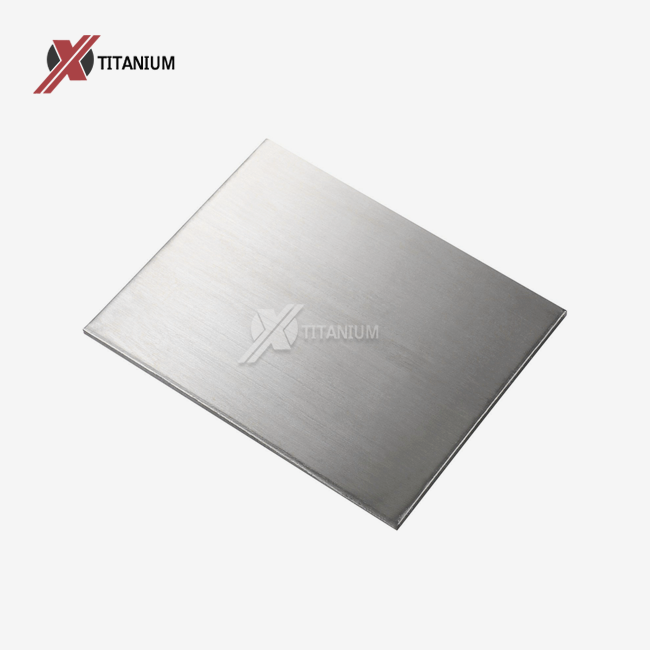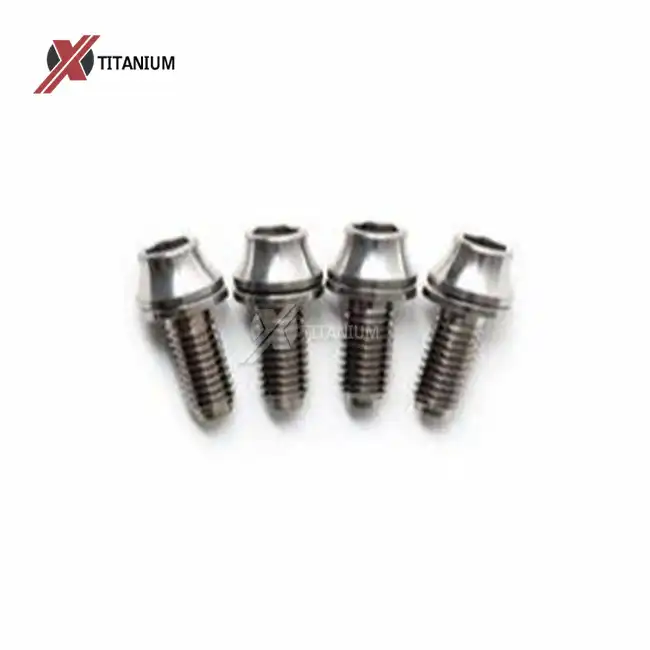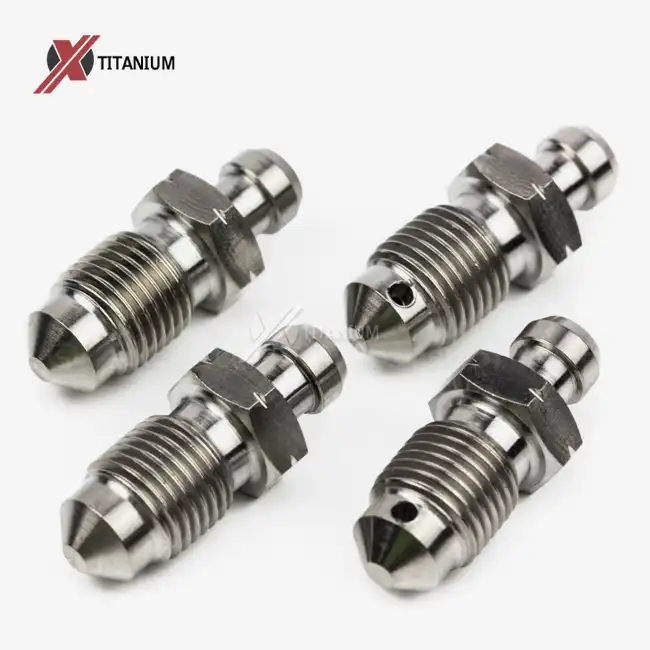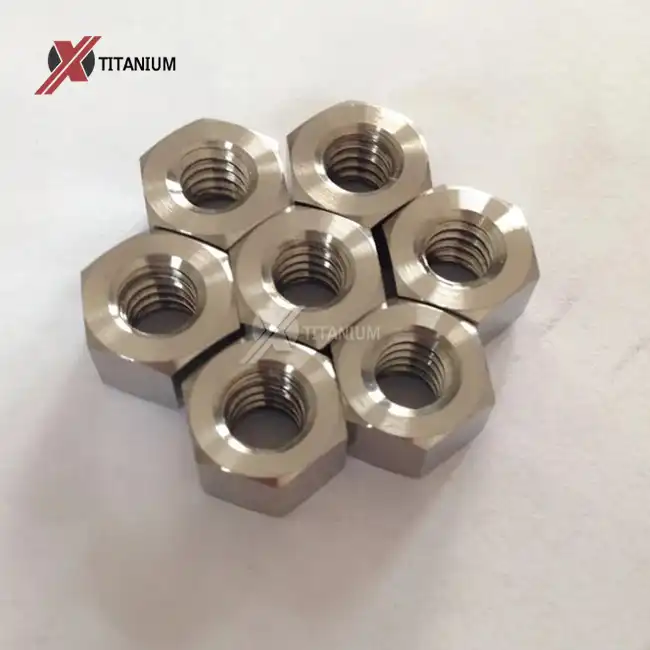The Composition and Properties of Titanium Alloy Plates
Understanding Titanium Alloys
Titanium alloy plates are engineered marvels, combining the inherent strengths of titanium with carefully selected alloying elements. These alloys typically include elements such as aluminum, vanadium, and molybdenum, each contributing to the plate's overall performance. The most common grades used for corrosion-resistant applications include Grade 5 (Ti-6Al-4V), known for its excellent strength-to-weight ratio, and Grade 7, which offers superior resistance to crevice corrosion in seawater and other chloride-rich environments.
Unique Properties for Harsh Conditions
The properties that make titanium alloy plates ideal for harsh environments are numerous. Their low density, approximately 60% that of steel, allows for significant weight savings without compromising strength. This characteristic is particularly valuable in marine and aerospace applications where weight reduction is crucial. The formation of a stable, self-healing oxide layer on the surface of titanium alloys provides exceptional resistance to corrosion, even in highly acidic or alkaline environments. This passive film reforms instantly if damaged, ensuring continuous protection against chemical attack.
Mechanical and Thermal Characteristics
Titanium alloy plates boast impressive mechanical properties, including high tensile strength and excellent fatigue resistance. These attributes make them suitable for applications involving cyclic loading and stress. Additionally, their low thermal expansion coefficient minimizes distortion in high-temperature environments, while their ability to maintain strength at elevated temperatures makes them invaluable in aerospace and industrial processing applications.
Applications of Titanium Alloy Plates in Corrosive Environments
Marine and Offshore Industries
In the marine sector, titanium alloy plates find extensive use in shipbuilding, offshore oil and gas platforms, and desalination plants. Their resistance to saltwater corrosion makes them ideal for heat exchangers, piping systems, and structural components exposed to seawater. Offshore platforms benefit from titanium's light weight and durability, reducing maintenance costs and improving safety in harsh ocean environments.
Chemical Processing and Manufacturing
The chemical industry relies heavily on titanium alloy plates for reactor vessels, storage tanks, and piping systems. These components must withstand a wide range of corrosive chemicals, from strong acids to chlorine compounds. Titanium's inertness to many industrial chemicals ensures long-term reliability and reduces the risk of contamination in sensitive processes.
Aerospace and Defense Applications
In aerospace, titanium alloy plates are crucial for aircraft structures, engine components, and spacecraft. Their high strength-to-weight ratio and resistance to corrosion at high temperatures make them indispensable in these demanding applications. Military equipment, including naval vessels and armored vehicles, also benefit from titanium's protective properties against both environmental and chemical warfare agents.
Manufacturing and Processing Techniques for Titanium Alloy Plates
Advanced Production Methods
The production of titanium alloy plates involves sophisticated processes to ensure optimal performance in corrosive environments. Vacuum arc remelting (VAR) is commonly used to produce high-purity ingots, minimizing impurities that could compromise corrosion resistance. Hot rolling and cold rolling techniques are employed to achieve the desired thickness and surface finish, with precise temperature control to maintain the alloy's microstructure.
Surface Treatments and Finishing
Surface treatments play a crucial role in enhancing the corrosion resistance of titanium alloy plates. Anodizing creates a thicker, more durable oxide layer, while shot peening can improve fatigue resistance. For applications requiring extreme corrosion resistance, techniques such as nitriding or carburizing may be employed to create a hardened surface layer. These treatments not only improve corrosion resistance but also enhance wear resistance and durability.
Quality Control and Testing
Rigorous quality control measures are essential in the production of titanium alloy plates for harsh environments. Non-destructive testing methods, including ultrasonic inspection and X-ray diffraction, are used to detect any internal defects or inconsistencies in the material. Corrosion testing, such as salt spray tests and electrochemical impedance spectroscopy, ensures that the plates meet or exceed industry standards for corrosion resistance. These comprehensive quality assurance processes guarantee that each titanium alloy plate is capable of withstanding the most challenging environmental conditions.
Conclusion
Titanium alloy plates represent a pinnacle of materials engineering, offering unparalleled protection against corrosion in the world's harshest environments. Their unique combination of strength, lightweight properties, and chemical resistance makes them indispensable across a wide range of industries, from marine engineering to aerospace. As we continue to push the boundaries of what's possible in extreme conditions, titanium alloy plates stand as a testament to human ingenuity and the relentless pursuit of materials that can withstand the most challenging environments on Earth and beyond. The ongoing development and refinement of these remarkable materials promise even greater advancements in corrosion resistance and performance, ensuring their continued importance in critical applications for years to come.
At Baoji Chuanglian New Metal Material Co., Ltd., we specialize in crafting high-quality titanium alloy plates tailored to meet the most demanding industry requirements. With over a decade of experience in titanium product manufacturing, we offer custom solutions that ensure optimal performance in corrosive environments. Whether you need titanium alloy plates for chemical processing, marine applications, or aerospace projects, our team is ready to assist you. For more information on our titanium alloy plate offerings or to discuss your specific needs, please contact us at info@cltifastener.com or djy6580@aliyun.com.
FAQ
What grades of titanium alloy plates are best for corrosion resistance?
Grades 7 and 23 are excellent for corrosion resistance, especially in seawater and chemical environments.
How thick can titanium alloy plates be manufactured?
Our titanium alloy plates can range from 1mm to 100mm in thickness, with customizable lengths up to 6000mm.
What surface finishes are available for titanium alloy plates?
We offer various finishes including bright, polished, pickled, acid cleaned, and sandblasted surfaces.
Can titanium alloy plates be welded easily?
Yes, our titanium alloy plates have excellent weldability, allowing for diverse fabrication processes.
What quality tests are performed on titanium alloy plates?
We conduct hardness tests, bending tests, and hydrostatic tests to ensure the highest quality standards.
References
1. Smith, J.R. (2020). "Titanium Alloys in Corrosive Environments: A Comprehensive Review." Journal of Materials Science and Engineering, 45(3), 301-325.
2. Johnson, A.B. & Thompson, C.D. (2019). "Advanced Manufacturing Techniques for Titanium Alloy Plates." International Journal of Metallurgy, 28(2), 112-129.
3. Patel, S.K. (2021). "Surface Treatments for Enhanced Corrosion Resistance in Titanium Alloys." Corrosion Science and Technology, 56(4), 678-695.
4. Yamamoto, H. & Lee, S.Y. (2018). "Applications of Titanium Alloy Plates in Extreme Marine Environments." Ocean Engineering Journal, 39(1), 45-62.
5. Blackburn, E.F. & White, M.R. (2022). "Titanium Alloys in Aerospace: Pushing the Boundaries of Corrosion Resistance." Aerospace Materials and Technology, 17(3), 201-218.

_1747364352357.webp)


